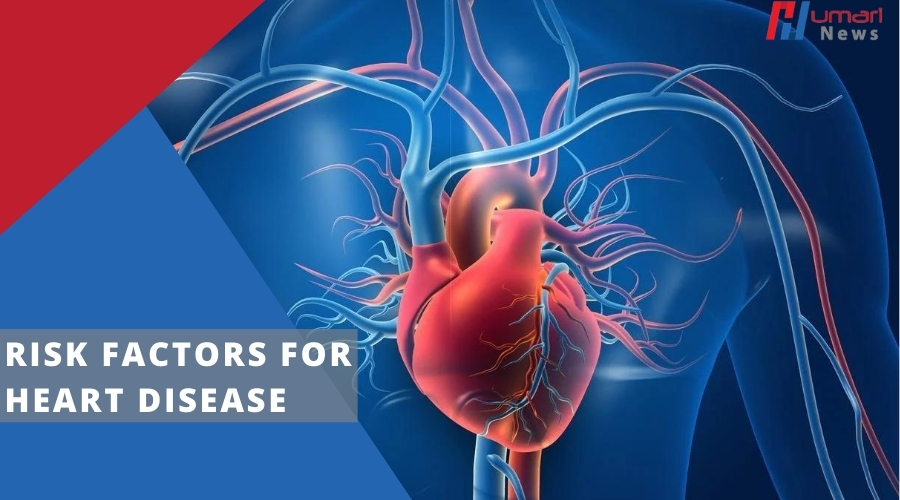Heart disease continues to be one of the top causes of death worldwide, impacting millions annually. It includes various conditions such as coronary artery disease, heart attacks, and heart failure. Understanding the risk factors associated with heart disease and taking steps to prevent it is crucial for maintaining heart health and overall well-being. In this article, we will discuss the major risk factors for heart disease and provide practical tips for prevention.
1. Risk Factors for Heart Disease

Several factors contribute to the development of heart disease, and these can be divided into modifiable and non-modifiable risks. Understanding these risk factors for heart disease can help individuals make informed decisions to reduce their likelihood of developing heart disease.
a. Modifiable Risk Factors
- High Blood Pressure (Hypertension): High blood pressure puts extra strain on the heart and arteries, making it one of the most significant risk factors for heart disease. Over time, untreated hypertension can damage the blood vessels, leading to heart attacks and strokes.
- High Cholesterol Levels: Elevated levels of LDL (bad) cholesterol and low levels of HDL (good) cholesterol can lead to the build-up of fatty deposits in the arteries. This condition, known as atherosclerosis, narrows the arteries, restricting blood flow to the heart and increasing the risk of heart disease.
- Smoking: Smoking damages the lining of blood vessels, increases blood pressure, and reduces the amount of oxygen in the blood, significantly raising the risk of heart disease. Smokers are more likely to develop atherosclerosis, which can lead to heart attacks.
- Unhealthy Diet: Diets high in saturated fats, trans fats, sugar, and sodium contribute to high cholesterol levels, obesity, and hypertension, all of which are risk factors for heart disease.
- Physical Inactivity: A sedentary lifestyle weakens the heart and contributes to weight gain, high blood pressure, and high cholesterol. Lack of regular physical activity increases the risk of heart disease.
- Obesity: Excess body weight, particularly around the waist, is associated with high cholesterol levels, high blood pressure, and insulin resistance, all of which contribute to heart disease.
- Diabetes: Increases the risk of heart disease, as elevated blood sugar levels can harm blood vessels and the nerves that regulate the heart.
- Excessive Alcohol Consumption: Drinking too much alcohol can raise blood pressure, lead to weight gain, and increase the risk of heart disease.
- Chronic Stress: Long-term stress can contribute to unhealthy behaviors, such as overeating, smoking, and alcohol consumption, which increase the risk of heart disease. Stress also raises blood pressure and inflammation, further straining the heart.
b. Non-Modifiable Risk Factors
- Age: The risk of developing heart disease increases. Men over 45 and women over 55 are at a higher risk.
- Gender: Men are generally at higher risk of heart disease at a younger age, but the risk for women increases and often matches men after menopause.
- Family History: A family history of heart disease can increase your own risk. Genetics can play a role in conditions like high cholesterol, hypertension, and diabetes, which are linked to heart disease.
2. Prevention Tips for Heart Disease

While some risk factors like age and family history cannot be changed, there are many lifestyle changes you can make to lower your risk of heart disease. Here are key prevention tips:
a. Manage Blood Pressure and Cholesterol
- Monitor your blood pressure and cholesterol levels: Regularly check your blood pressure and cholesterol levels, especially if you are at risk or have a family history of heart disease.
- Follow a heart-healthy diet: Focus on a diet rich in fruits, vegetables, whole grains, and lean proteins. Limit your intake of saturated fats, trans fats, and sodium, which contribute to high cholesterol and blood pressure.
b. Quit Smoking
- Stop smoking: Quitting smoking is one of the most effective ways to reduce the risk of heart disease. Within a year of quitting, your heart disease risk drops significantly.
c. Get Regular Exercise
- Engage in physical activity: Aim for at least 150 minutes of moderate-intensity aerobic activity, such as brisk walking, or 75 minutes of vigorous-intensity activity, such as running, per week. Exercise strengthens the heart, improves circulation, and helps control weight and blood pressure.
d. Maintain a Healthy Weight
- Achieve and maintain a healthy weight: Losing even a small amount of weight can lower your risk of heart disease. Focus on gradual, sustainable changes in diet and exercise to reach and maintain a healthy weight.
e. Manage Stress
- Practice stress-reducing techniques: Incorporate relaxation techniques like meditation, deep breathing, or yoga into your daily routine to manage stress. Finding healthy outlets for stress can prevent unhealthy behaviors that contribute to heart disease.
f. Limit Alcohol Consumption
- Drink in moderation: If you decide to consume alcohol, limit it to moderate amounts. This means up to one drink per day for women and up to two drinks per day for men.
Heart disease is a serious condition, but many of the risk factors of heart disease can be managed or even prevented through healthy lifestyle choices. By adopting a heart-healthy diet, exercising regularly, quitting smoking, and managing stress, you can significantly reduce your risk of developing heart disease. Making these changes not only protects your heart but also improves your overall quality of life.







